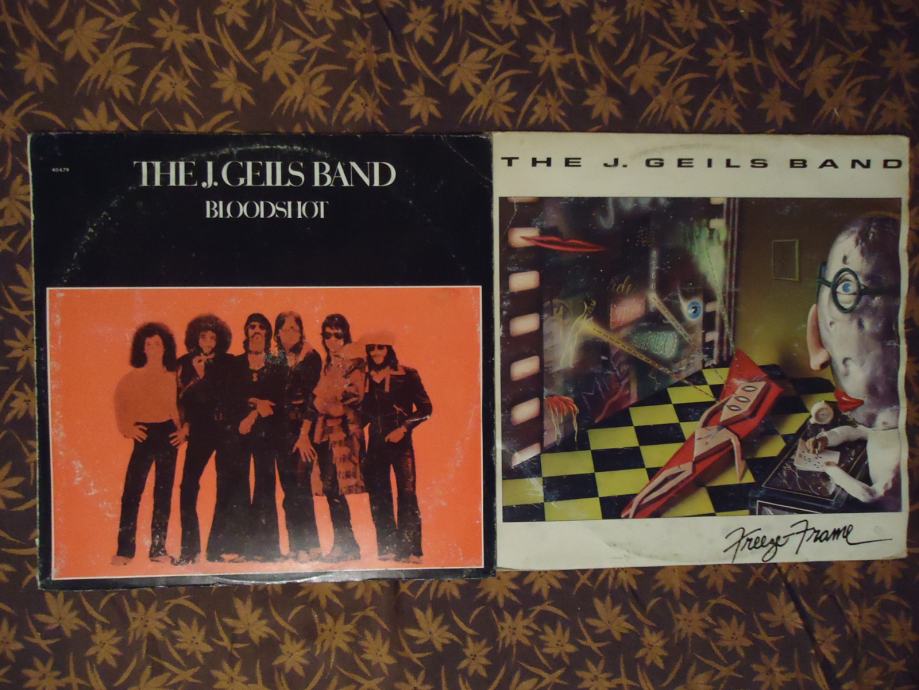
J Geils died in 2017 after spending his final decades mostly playing jazz in and around New England with his own trio or quartet.

A handful of other songs they have written together entered the Top 40, and many of their songs have appeared in television and films.Ī prickly breakup in 1983 was finally settled and a number of reunion dates were scheduled beginning in 1999. Their original songs have held the #1 slot on Billboard (“Centerfold”), #4 (“Freeze Frame”), and #12 (“Must of Got Lost”). The output of Peter Wolf and piano and organ player Seth Justman in this regard is impressive. The groups that were able to sustain great careers out of those roots were the ones who birthed a great songwriting team. Starting as cover bands in parents’ attics and basements, these groups had heard the innate power of black American blues and R&B artists and sought to reinterpret some of the genius they detected in those records.
#The j. geils band m4a how to
Many bands first learned how to play by proselytizing rock ‘n’ roll and rhythm & blues. A string of monster hits in 1980 (“Love Stinks”), 1982 (“Centerfold”), and 1984 (“Freeze Frame”) kept the band at the top of the rock charts long after what their expected run might have been. The band had an entirely new second lifetime beginning in 1980, one whose success far outstripped any of the recognition, adulation and record sales they had ever experienced as a gut-bucket rock ‘n’ roll outfit.

While the case could be made that they were the best American bar band in rock history, the J Geils Band was always its own competent, confident and complex entity. Although a 2000-seat venue, the Cinderella Ballroom qualifies by evidence of its infamous “No dope-smoking, no beer sold after midnight” signage.
#The j. geils band m4a full
It is with Full House that you would make the best-bar-band-in-history argument. Side two features the knock-down, drag-out slow blues “Serves You Right to Suffer” and closes out with tireless pounding of “Looking for a Love.” Musicians: if you want to know how to end an up-tempo rock ‘n’ roll jam, this is how it’s done. Side one of this record is some of the most hard-driving, tight and raucous fifteen minutes of live rock and roll you’ll find, and if you haven’t heard it in a while, saddle up and give it another spin. It is a monster set of music played at the Cinderella Ballroom in Detroit, a city that served as the band’s second home. One of the best live albums of any type is the classic J Geils Band album, Full House. Are they the best American bar band in rock ‘n’ roll history? The case could be made. A charismatic frontman, an enigmatic and reserved guitarist and a punishing rhythm section are similarities enough. The Rolling Stones would qualify as a bar band in some definitions, and it is sometimes said that the J Geils Band was the United States’ answer to the Stones. There are high concept album bands like Pink Floyd, Genesis, ELP and Yes, and then there are bar bands. Hardly anyone stateside else even comes close to Tyler or Wolf, and if you want to take that Gene Kelly, Ken Berry, Danny Kaye polished song and dance man into the rock idiom, it’s hard to imagine a non-instrumentalist frontman on either side of the Atlantic that put in a more accomplished or energetic performance than Peter Wolf from the J Geils Band. If there has ever been a better American front man in that tradition, it was from another band out of Boston, Aerosmith. In the classic strutting-with-a-straight- stand rock star avatar established and defined by Robert Plant and Mick Jagger, America had no finer offering in the category than Peter Wolf. Seth Justman joined on piano and organ in 1969, and that lineup would hold steady for 14 years and as many albums. Wolf had a band at the time - The Hallucinations - and was particularly fond of their drummer, Stephen Bladd Wolf proposed to bring him along into an amped-up, ramped-up version of what the J Geils Blues Band was already doing.

A fast-talking DJ named Peter Wolf from the Bronx arrived in town and landed a job at Boston’s brand-new FM radio station, WBCN, and when Wolf heard the J Geils Blues Band at a Cambridge club one day, he saw the future. Fans of the band can probably guess these accompanists were Magic Dick and Danny Klein. J Geils himself was an acoustic slide guitarist who was popular in the Cambridge folk scene around that time, playing in an eponymous blues trio with a master harmonica player and an acoustic bassist.

The J Geils Band formed in Boston, Massachusetts in the late ‘60s.


 0 kommentar(er)
0 kommentar(er)
